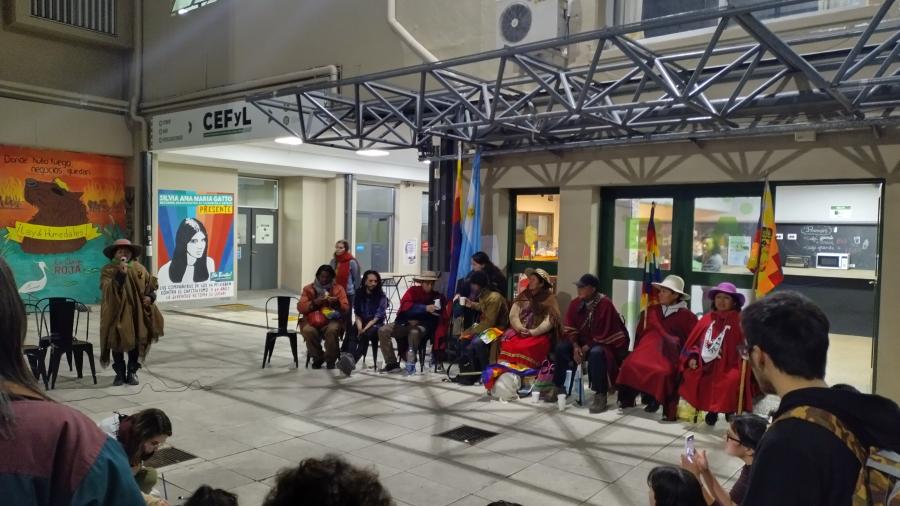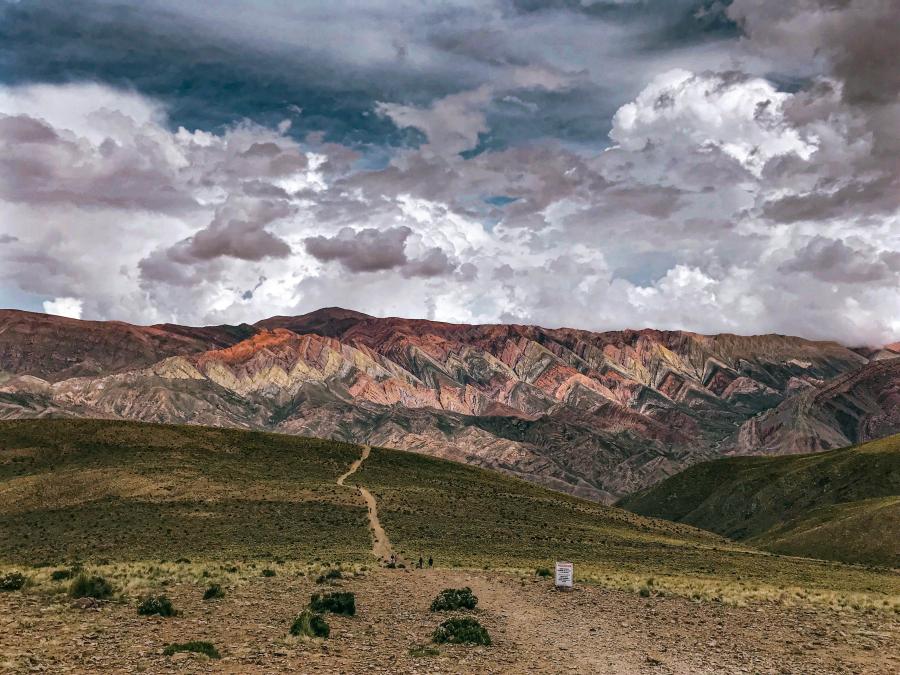
By Candela Palacios (CS Staff)
On Sunday, November 19, 2023, in a context of high inflation and growing political violence, Javier Milei, a 55-year-old liberal economist, won the second round of Argentina’s elections over the ruling party's candidate, Sergio Massa, by more than 11 percentage points, or almost three million votes. His campaign was marked by eccentricity, contradictions and discursive violence. His original proposals, many of which he toned down or modified throughout his campaign, included a substantial reduction of the State, the elimination of ministries, the closing of the central bank, the dollarization of the economy, and the privatization of health and education. He has also proposed privatizing public enterprises, the public media, and the main science agency, CONICET.
The massive vote for this extreme liberal proposal, even a little more than 20 years after the most serious crisis suffered in the country at the hands of another liberal government, can be explained by fatigue in the face of a new economic crisis and high inflation. In addition to these material reasons, there is a long media campaign against the current Kirchnerist-Peronist government, which leads a large part of the population to conclude that any alternative, even the most radical, is better than the proposal of the outgoing government. However, a portion of Milei's voters follow him with conviction, and given the violence and intolerance of the statements of the future president and other members of his party, La Libertad Avanza (Freedom Advances), this is perhaps the most worrying aspect of the current context.
Beyond his economic proposals, Milei and his party are ideologically positioned against anything they consider “leftist.” One of the most serious points in this positioning is the denialism towards the last military dictatorship suffered by the country, between 1976 and 1983. This de facto government attacked political proposals that it considered subversive, mostly of left-wing tendency, claiming more than 30,000 victims in a proven systematic plan of kidnappings, tortures, murders, and appropriation of babies. Although they are not usually mentioned in the discourses denouncing the crimes of the dictatorship, many Indigenous people are among the victims.
Milei, repeating speeches of the repressors and genocidaires prosecuted for these acts of State terrorism, assures that during those years there was a civil war in which "excesses were committed", and questions the number of victims, even though there are U.S. military reports that confirm a number close to 22,000 victims several years before the end of the dictatorship. The strongest spokesperson for this position in the new government is the vice-president-elect, Victoria Villarruel. A conservative lawyer coming from a military family closely linked to those responsible for the dictatorship, Villarruel proposes to review the country's Human Rights and Memory policies, and according to Milei, she will be responsible for the areas of Defense, Security and Intelligence, where the Armed Forces are included. But the military is not the only social group in Villaruel's sights.
In 2022, during her term as national representative and with the support of Milei in the same role, Villaruel presented a bill proposing the repeal of Law 26160, on the territorial survey of Indigenous communities. This emergency law passed in 2006 suspends the execution of sentences aimed at evicting communities from the lands they occupy, and orders INAI, the National Institute of Indigenous Affairs, to carry out a national survey of the communities and their territories, generating documentation on which to base a future Community Land Ownership Law. The proposal to repeal this law is based on the dismissal of the existence of an emergency situation, removing legitimacy from the territorial claims of the Indigenous Peoples and accusing them of being terrorists, criminals and violators of the private property law.
Being an emergency law, it has a duration of four years, after which it must be extended. The first three extensions were given by law, and the fourth and last by presidential decree in 2021. Due to a lack of political will and low INAI funding, the survey is still far from being completed. The next extension should occur in 2025, within Milei's mandate. It is not difficult to imagine that this new extension will encounter obstacles to be carried out, but the survey is also endangered by the future president's intention to reduce public spending by defunding and eliminating all state agencies he considers superfluous, among which we can probably count INAI. If this law is repealed, it opens the possibility of evicting Indigenous communities throughout the national territory through judicial and administrative processes, and this without taking into account the growing risk of illegal evictions, which many Indigenous communities throughout the continent are already facing, enabled by the lack of protection and state indifference.
To this context of vulnerability it is important to add other current events that threaten the rights of Indigenous Peoples in Argentina. Since the middle of this year, the Indigenous communities of the province of Jujuy have been facing the violation of their rights through the reform of the provincial constitution that facilitates the access of mining companies to lithium in their territories, while criminalizing protest. The Third Malón de la Paz, an Indigenous mobilization that traveled from Jujuy to Buenos Aires to demand the nullity of the reform, is in its fourth month of encampment in Plaza Lavalle, in front of the National Courts Palace, waiting for a response from the State and Justice. A constitutional reform of similar characteristics is being carried out in the province of La Rioja, where there is also interest in expanding the exploitation of lithium. Needless to say that both reforms were carried out without respecting the right of Indigenous Peoples to Free, Prior and Informed Consent, a right ratified in the country by the National Law 24.071 of 1992.
Taking advantage of the fact that the eyes of the country were focused on the presidential elections, during the last weeks the Legislature of the Province of Rio Negro, Mapuche-Tehuelche ancestral territory, approved a reform of the provincial land law, which affects almost five million hectares of fiscal lands in Indigenous territory, also ignoring the right to consultation and the claims of the Indigenous Peoples of the region. This modification also favors the installation of oil and mining exploitations, to the detriment of the communities, and adds to a series of provincial legislative reforms that leave Indigenous people and the environment unprotected.
It is clear that for the new national government and for many of the provincial governments, Indigenous Peoples and their rights are not only not a priority, but are an obstacle in the face of extractivist possibilities that falsely promise a way out of the economic crisis. In the face of a view that prioritizes profit above all other objectives, the perspective of Good Living (Sumak kawsay or Buen Vivir) of Indigenous Peoples, which implies greater equality, better living conditions and the care of the territory and its resources, is completely left aside.
Beyond the legislative or administrative reforms that affect the communities, there is reason for concern about the increasing repression of Indigenous Peoples’ protests, and the increase of discourses that legitimize State and civil violence against any political manifestation contrary to the sign of the incoming government. It is fundamental that governments seek to guarantee democracy, human rights, and the rights of Indigenous Peoples, including their right to Free, Prior and Informed Consent and self-determination. No real democracy or socioeconomic progress is possible without respect for the rights of the entire population of a nation.
Forty years after the recovery of democracy, we hope that the new government and the people of Argentina can build country projects from a non-violent dialogue and from the respect for the rights won by the popular struggle, of which Indigenous Peoples, pre-existing the national State, are an integral part.
Top photo: Javier Milei in the program "La Noche de Mirtha" on December 3, 2022, taken from the Flickr of Ilan Berkenwald.


